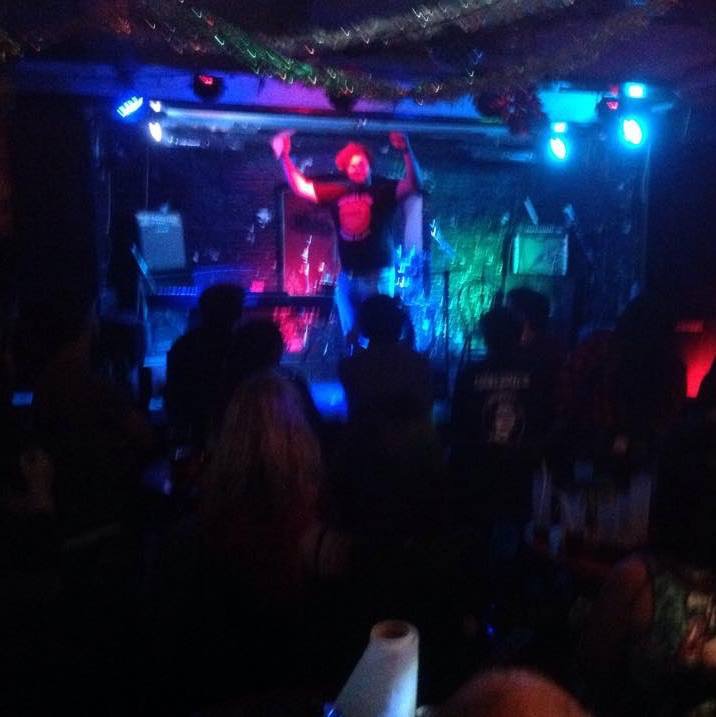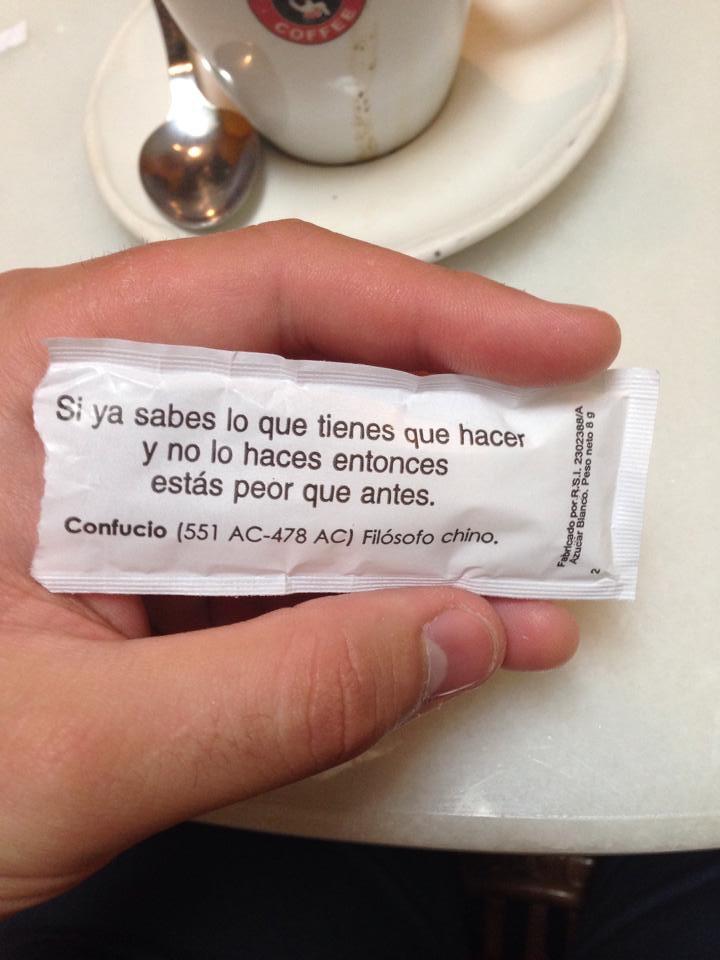Apr 22 - Paella, Parmesan And Bruschetta: What We Lost And How To Get It Back
 By Stefano Blanca Sciacaluga
By Stefano Blanca Sciacaluga
I'm sure some of you will have experienced it before, you pronounce something correctly in another language and people around you give you a look that's somewhere between "this guy doesn't know how to speak" and "who does this guy think he is?". I've been getting those all my life.
I grew up in a predominantly Spanish-speaking household of a predominantly Spanish-speaking family, I watched Spanish-speaking television almost exclusively until just before my teens (when quite frankly things didn't change much), and outside of the school setting a lot of my reading was done in Spanish; so you could say, and without wanting to sound pretentious, I have a pretty good grasp of the language. I know some of the younger readers will think this is a little strange, but that's just the way it was for a lot of people my age and older, growing up in Gibraltar. What really sets me (and others, of course) apart is a curiosity for language learning, for finding out the correct way to say things, for challenging yourself and what you hear around you; and ultimately it's that inquisitiveness that led me to go beyond my linguistic comfort zone of Gibraltarian Spanglish to spend my teens and early twenties studying languages and everything about them in school and university.
I was recently watching a show on GBC where they were talking about the diminishing use of Spanish in Gibraltar; it's what's on a lot of people's lips these days, including my own. There is nothing I feel stronger about than cultural identity so you can imagine how this makes me feel; it seems to me that our Gibraltarian identity is being washed away in a sea of Netflix, YouTube, and hundreds of TV channels to choose from. So why are we doing this to ourselves? In an age where people all over the world are trying to learn second, third and fourth languages we're throwing our chances away. I was recently discussing identity with a friend over a coffee and the one thing that really stuck with me were the questions, "When did we stop speaking all the languages that were spoken in Gibraltar? When did we stop speaking Genoese (or other variants of modern day Italian)? When did we stop speaking Maltese? When did we stop speaking Portuguese? And when did we decide that despite having all these options we would stick to Spanish and English?"

Of course, there's the obvious answer: our proximity to Spain is probably to blame (or thank, however you wish to see it) for the strength the language has in our community, but really can it be that strong that we have lost all knowledge of other languages, some that once upon a time were even more common in Gibraltar than English and Spanish? The fact is that although in this city we are great dwellers on the past we seem to have completely wiped out a chunk of our history and if things continue the way they're going it will be an even bigger chunk.
We all laugh at TV chefs when, in an attempt to call a product by its proper Spanish or Italian name, they (very confidently) make monumental mistakes - I'm thinking pa-ye-ya for paella and (the American favourite) parma john for Parmesan - but their effort is admirable. I bet they have to endure a lot of the looks I've had to endure, just for trying. So why do we, here in Gibraltar, make big pronunciation errors with things that should come so natural to us?
Some years ago in an Andalusian dialectology class a lecturer told me what my twenty-one-year-old brain needed to hear, "having an accent does not mean you cannot speak a language properly, only that you have an accent when speaking it", which translated to me and to my situation as a Gibraltarian and with an education in languages as "people shouldn't give you any weird looks for saying things in a certain way if they are correct". So why am I still getting them? I know for a fact that the vast majority of Spanish-speaking Gibraltarians can defend themselves Speaking proper castellano, but in Gibraltar and between peers prefer to use their llanito accent; and that's a beautiful thing, I love my llanito accent and I love our llanitadas. But since that chat on how and when other languages in Gibraltar went into disuse it's really stood out how much we have lost these languages. We only need to see how we now pronounce things like street names; take for example Pezzi's Steps (which I've heard being pronounced pezy) or La Piazza (as piassa) which should both have the same stress on the Z's as pizza. Or the until fairly recently unknown Boschetti's Steps, which should be pronounced as bosketty/bosqueti; with the same pronunciation applying to Casa Brachetto on Chatham Counterguard and a favourite starter at many local restaurants, bruschetta. And I could go on for a bit; we've even, over the years, bastardised surnames to pronounce them completely different to how they should be pronounced.
So how, you may ask, do we alleviate this problem? The key is in what the lecturer I mentioned above was getting at: don't be afraid of speaking properly, don't be ashamed of your accent and embrace your background and your personal history. Once you've covered these things explore our history and culture, walk the back streets and learn all the names, explore your own history with the government's online archives, buy yourself a copy of Tito Vallejo's Llanito Dictionary and browse the goldmine that is Llanito Làngwij (on Facebook or on www.llanitollanito.com), and why not, celebrate llanitadas on The Word on the Street Is... (on Facebook or on http://thewordonthestreetis.tumblr.com).
Good luck!
Check out some of Stefano’s projects at:
https://twitter.com/stefanoblanca
http://instagram.com/stefanoblanca
{fcomment}
Latest News
- GHA Reaffirms Commitment to Constructive Engagement with Unite the Union
- Gibraltar Netball To Host Street Netball Event At Campion Park
- Youth Service Members Visit Live Parliament Session To Promote Active Citizenship
- Lourdes To Gibraltar Charity Ride Team Set To Arrive Saturday 24th May
- Minister Cortes Visits Morocco’s Banque Populaire’s Gibraltar Offices
- Torque The Rock Returns To Gibraltar With Runway Sprints
- Scott Wiseman Will Continue As Gibraltar’s Men’s National Team’s Head Coach
- Condolences on the Passing of Congressman Gerry Connolly
- Government Statement to Parliament on Chagos Islands
- Walk The Rock Campaign: Gibraltar Upper Primary Schools Unite For Fitness And Fun




